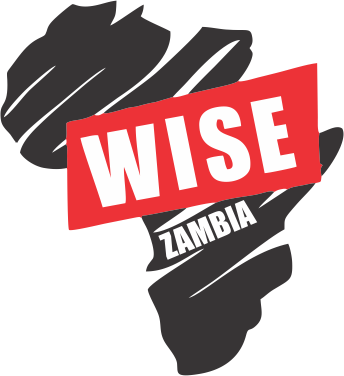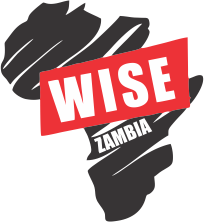Shifting gears - reflections on my new passion with WISE Zambia
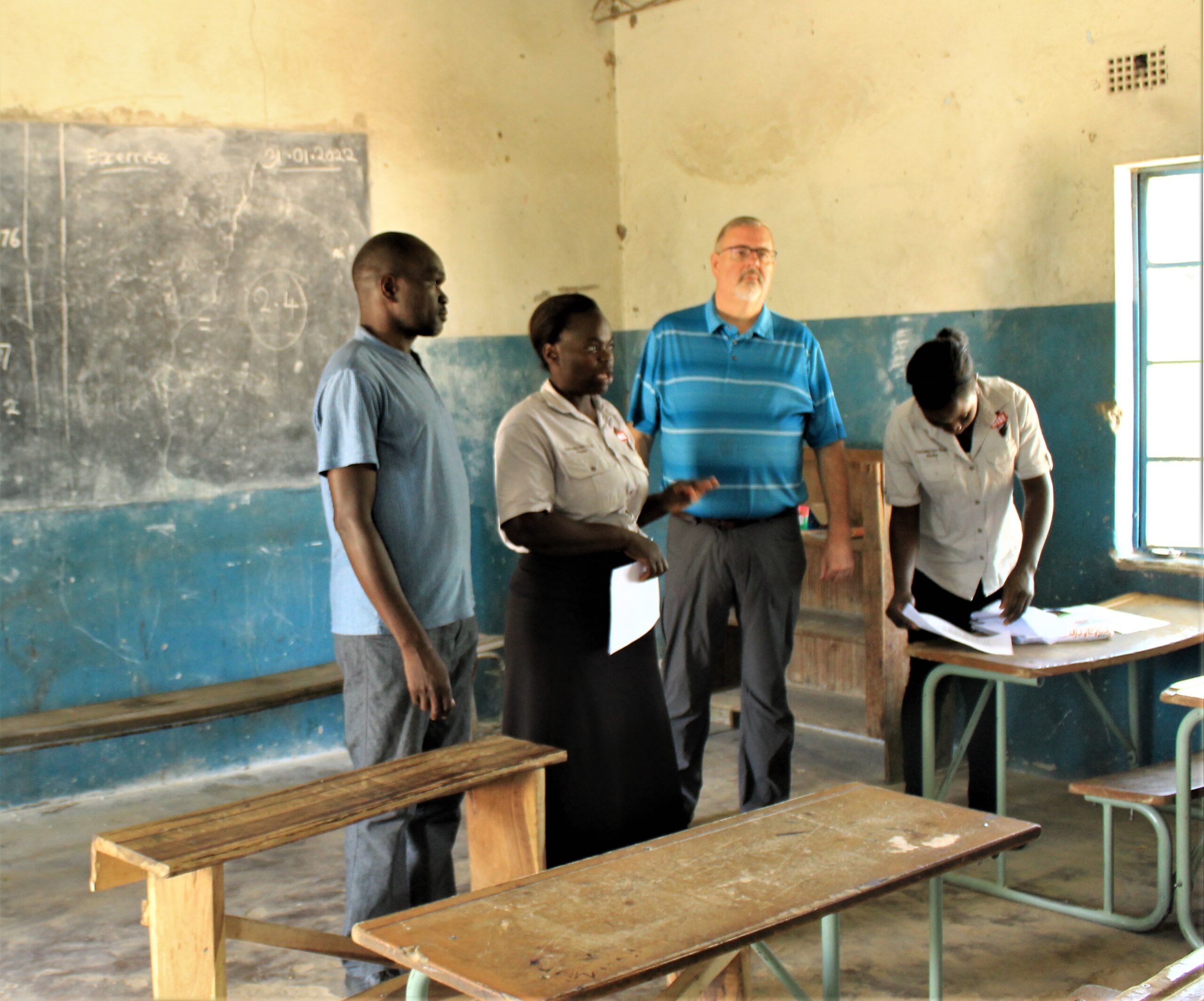 THOUGHTS ON MY 60th BIRTHDAY
THOUGHTS ON MY 60th BIRTHDAY
Collaborating with WISE Zambia is undoubtedly one of the most selfish things I have ever done. I promised you an essay on why WISE Zambia is important to me and that I shall deliver. But I cannot provide you with the syrupy sweet platitudes of graduation speeches about “helping others” or “giving back.” Let’s be real; I harbor no illusions about what I can give to others, which is undoubtedly very little. But I know what I’ve received from others, particularly the complex personalities from Zambia’s Western Province, and that is what I shall share through a few vignettes.
I’ll start in 2007, when I made my first trip to Africa, northern Uganda more specifically. I worked for a civil rights law firm at the time and my trip was motivated by a police shooting north of Phoenix. A Department of Public Safety officer had shot and killed a Sudanese “Lost Boy” (Joseph) who had relocated to Phoenix. His uncle, also a Phoenix residence, retained our firm to represent the family in a suit against the State.
The family resided in a refugee camp just a few miles from then-Sudan in northern Uganda. Someone had to meet the family and I volunteered. My objective was simple; get the information we needed to make a lot of money from this lawsuit and maybe have a fun trip along the way.
But then I met Joseph’s father, Pastor David. He lived with his wife and other children in the Alere 2 refugee camp, a collection of huts in some of the worst land Uganda had to offer, lacking electricity and even requiring a two-mile hike to get potable water.

But Pastor David was not wallowing in self-pity as a result of his plight or even the death of his son. He pastored a nearby church, open to both nearby Sudanese refugees as well as local Ugandans. Even more impressive, he managed an orphanage for local children whose parents had been lost in the Sudanese civil war. Despite his humble circumstances, I have never met anyone who devoted more of her or his life to helping others. I was the one humbled.
I came to get what I needed to make lots of money on a civil lawsuit. I got that. But I also got a new role model, pretty high up on my list (only Dad and Mom rank higher!).
I’m now going to flash forward quite a few years to January and February of this year, my first trip back to Zambia in nearly three years due of COVID. The prolonged absence was good for me; I saw things freshly. I was amazed by the smooth operation of distributing start of the school year supplies to nearly 400 students scattered among two dozen remote schools. I was amazed by the changes to the Kaoma Campus and the bustle of activity of active and potential students there.
And my perception of yet another life role model was reinforced. WISE Zambia is where it is because of the tireless efforts of one critical person, its Zambia Director Maggie Indopu Wamunyima. Maggie holds a bachelor’s degree in community development, in addition to a diploma in fnance. She is conversant in seven languages. She could easily live and work in Zambia’s capital, Lusaka, earning a very comfortable salary in the private sector. But she remains in her hometown of Zambia, dedicated to making a difference there. And doing so quite effectively.
But then came time for my inevitable humbling. The first Friday night there, I was the guest of honor at a dinner of about 15 WISE students in their gap period between high school graduation and start of college. After appropriate formalities and early discussion, the students began talking among themselves. I got a once-in-a-lifetime opportunity to be a fly on the wall, listening to conversations where I experienced the reality of these students’ lives.
And make no mistake, humbled I was. I listened as the students discussed many of the stresses of high school, including peer pressures and high school temptations. I heard the concerns about leaving their homes and traveling to various colleges and universities throughout Zambia. I listened as they contemplated their various courses of studies and majors, concerned about following passions as opposed to fields of study with better economic outlooks in Zambia. I overheard discussion about recent political developments in Zambia, with reasoning that puts most discussions here to shame.
So why was I humbled? I realized that I, too, had fallen into the trap of many persons in the developed world, of failing to recognize residents of developing areas as fully human, with the same degree of emotional complexity and personal intricacies as every other human that inhabits our planet. (We even have a somewhat pedantic phrase for this, “first world problems,” as if our problems were more special than those of developing nations.) If this wasn’t reinforced enough in this extraordinary meeting, it certainly was later in the trip when Maggie and I met with the Zambia representative of StrongMinds. Consider this: StrongMinds is the only significant organization addressing the mental health needs of African women and adolescents. (Please check out its website: www.strongminds.org. Now my second favorite philanthropy in the world!) Water, schools, and basic health needs are great, but what about the whole person? StrongMinds estimates that 66 million women in Africa are struggling with depression, with few having access to treatment or counseling. And addressing these needs makes a huge difference: a 30% increase in children’s school attendance, a 28% increase in women feeling socially connected, and a 13% increase in family food security.
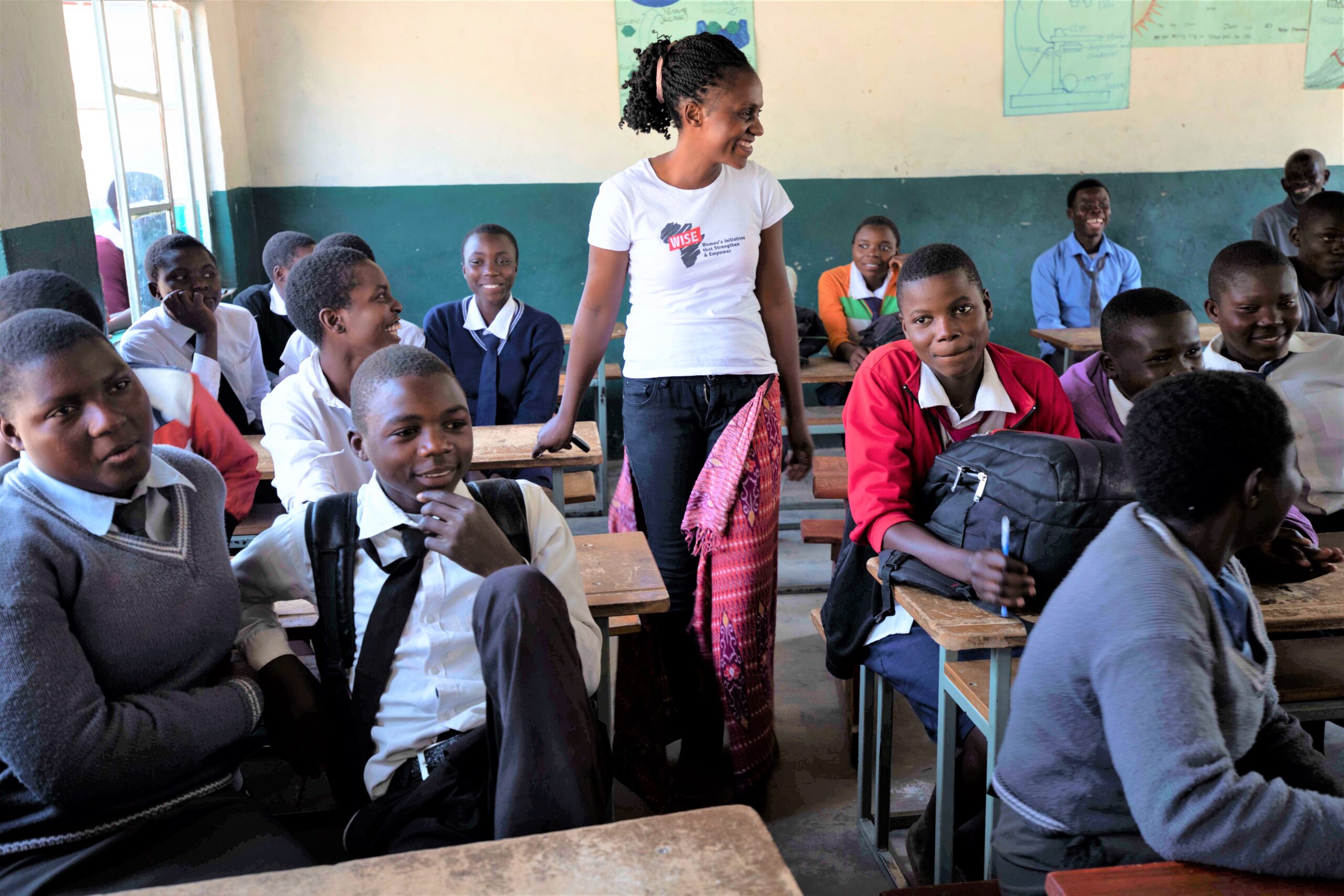
A few days later, Maggie our amazing staff (that’s you, Mukela and Namangolwa, plus our awesome interns) had me accompany them to the community school of Nooki. Nooki is over 40 kilometres along a “road” that is little more than two oxcart paths in the road. The school has no electricity, no internet, and few books or desks. Until 2013, when WISE first began providing educational opportunities to its students, none had gone beyond the 7th grade.
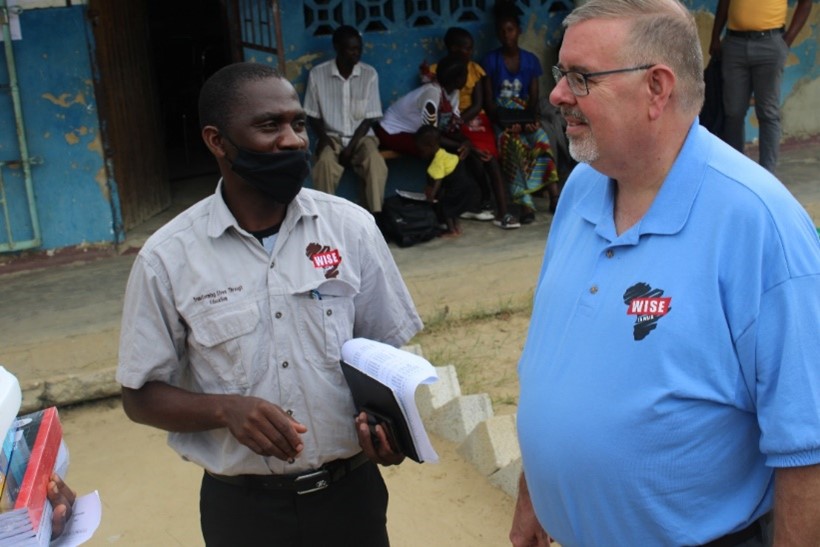

But here is what I learned. One of our first students from Nooki is now studying public health nursing; she received an award from the Zambian Nursing Association for her academic performance in her first year! I met three other recent high school graduates from Nooki, all heading off to nursing school. While I was there, yet another Nooki student received her 12th grade exam scores—good enough for four-year college admission!
The concept of opportunity costs struck me. The students at Nooki didn’t suddenly get smarter. They simply had educational opportunity that had never been available before.

And so how does this all continue my selfishness? I’ve recently become a grandfather. I love my two awesome (and the world’s cutest) grandchildren and wonder what the world will be like in 30-40 years. We have some clues in this regard: while North America, Europe and China age over this time, Africa is getting younger. Pandemics. Climate change. Worldwide supply change and currency issues. The 4th Industrial Revolution. And I have met some of the children that will be on the front lines of addressing these problems. There is the old statement, “the children are our future.” The more accurate statement: “the children of Africa are our future.” I want a better future for my children, grandchildren, and great-grandchildren. Every child in Africa that is able to achieve their academic potential advances this objective.
A few postscripts. In 2019, I returned to Uganda to connect with Pastor David again. He had received a settlement from the lawsuit involving his son and used the proceeds to expand and improve his orphanage in South Sudan. Alas, the civil war broke out in South Sudan and he was once again compelled to flee to Uganda. I found him in another refugee camp. But this time, UN officials gave him a block of space in the camp, where he lived amongst the orphaned children who fled with him, with occasional new arrivals as the war continued in South Sudan. He continues to devote his life to serving others.
Our staff in Zambia has big dreams for improving educational opportunities—dreams which I share. First, they wish to ensure that we continue to grow by at least 50 new scholarship students each year—and hopefully even more! Last year for the 50 open spots, we received over 1,200 applications!
Second, in 2023, they (we) plan to open our first branch office, beginning to work with rural schools around the community of Lukulu, about 150 kilometres from our home base in Kaoma.
Third, working with StrongMinds, we plan to inaugurate a mental health and counseling program available to all of our students, providing counseling not just for the downsides of mental health, but also to assist with the youthful dilemmas of college and vocational dreams.
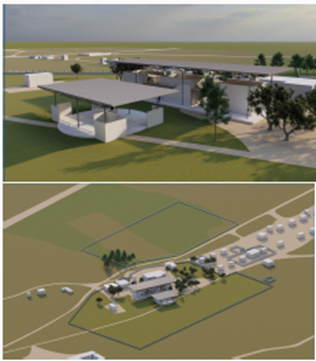
Fourth, we will soon construct a model learning centre on our Kaoma Campus: The engineers of HDR (and its philanthropic side group, D4O [“doing for others”]) is designing this center that accommodates the geography and weather of Western Zambia, while greatly improving the learning environment for students. Here, WISE will provide college-level entrance courses (not currently available in the Western Province), classes in computer skills, science, maths, and English, as well as countless other learning opportunities.
Finally, to go full circle, my own personal dream. WISE Zambia provides opportunities in remote areas of Zambia, where educational opportunity is often very limited. It is my own personal dream that, at some point, my Zambian colleagues move yond their own borders and share some of their opportunities with students elsewhere, particularly one of the poorest nations in the world, South Sudan.
WISE Zambia is my passion, even more than USC football! (And, unlike college football, our changes are for the good!). Would you like to learn more about why I’m so passionate about this work, what we do, and where we’re headed, please let me know.

WISE Zambia is a United States 501(c)(3) nonprofit organization, Federal Tax ID# 41-2141986. WISE Zambia is a registered Zambia non-governmental organization, Tax No. 1019286370
© Copyright 2023 Sishima Graphic Design (Zambia)
